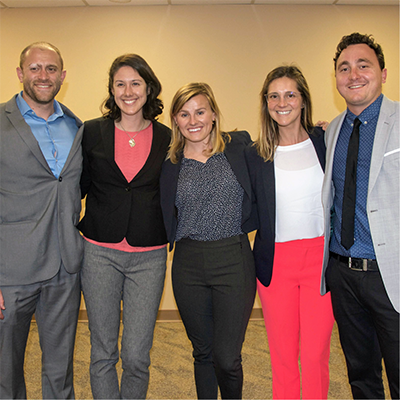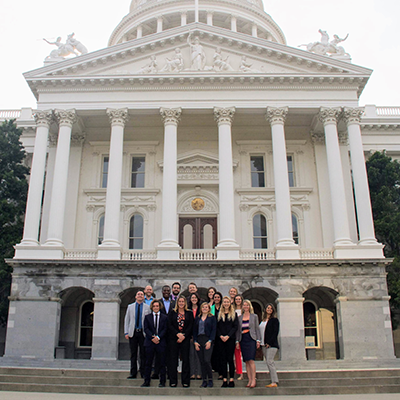We are graduate students at Scripps Institution of Oceanography, so to us, every day is ocean day – but on March 19, we joined over 250 advocates from all over California who descended on the state Capitol to lobby state lawmakers on behalf of our oceans. From plastic pollution to destructive oil and gas drilling, to sea-level rise adaptation, and to beach access, there was no shortage of important issues on the agenda at the 15th annual – and largest ever – Ocean Day in Sacramento.
Ocean Day is an annual event organized by a coalition of environmental NGOs to get important ocean issues in front of the people who make decisions on our behalves. Participants register in advance, are split into teams of five to six people led by a “team leader,” and meet in person on the morning of the event to review current ocean-related bills and talking points. This year, each team was scheduled to meet with up to four different lawmakers - either state senators or assemblymembers - throughout the day. We were truly a force to be reckoned with: a team of Ocean Day advocates met with the office of every single elected official in the Capitol building.

We didn’t spend our whole day lobbying - all 15 Scripps students in attendance, members of the MAS Marine Biodiversity and Conservation (MBC) program, participated in other Ocean Day activities too. Some strolled across the street to a luncheon focused on sea level rise and the need for adaptation while others chowed down on burritos at a “Beach Day”-themed lunch on the lawn of the Capitol Building, listening to remarks from State Controller Betty Yee and Secretary for Natural Resources Wade Crowfoot. Other highlights of the day included the swearing-in of our very own MAS MBC executive director Samantha Murray as the newest Fish and Game Commissioner and the first ever Ocean Day Science Communication Competition, during which five MAS MBC students had five minutes to present their research to a mixed audience (Kat and Katherine both participated - and Katherine tied with fellow classmate Ross to bring home the prize!)
At the end of the day, after we tended to the blisters on our feet, we reflected on what we accomplished. Did we move the needle, or make any lasting change? We met with legislators with reputations for voting against environmental protections, but didn’t personally experience any tough conversations in the halls of the Capitol. We spoke on a variety of conservation bills, but it will be months before legislators will be able to vote yea or nay.
The conclusion we came to was this: Change can happen where you least expect it.

Don’t get us wrong - we’re well aware that lots of global change happens in state and national capitals. But we learned an equally important lesson: Change takes time, a lot of effort, a varied approach, and comes in all shapes and sizes. We both talked to interesting people and our networks were expanded, leading to wallets full of new business cards and contacts we can call upon for perspectives on our research further down the road. We met amazing high school students who were poised and well-spoken, ready to take the reins from those of us graduating to careers that may take us away from the advocacy world. And we were reminded of just how much Californians care about the state of our fragile oceans and beautiful coastlines, and how passionate they are when it comes to their protection.
Team members all opened with the same line when they entered assemblymembers’ office: “We’re here to ask you to remember the oceans when you vote.”
We hope they listened.
-Kat Montgomery and Katherine Rainone are MAS MBC candidates at Scripps Institution of Oceanography at UC San Diego